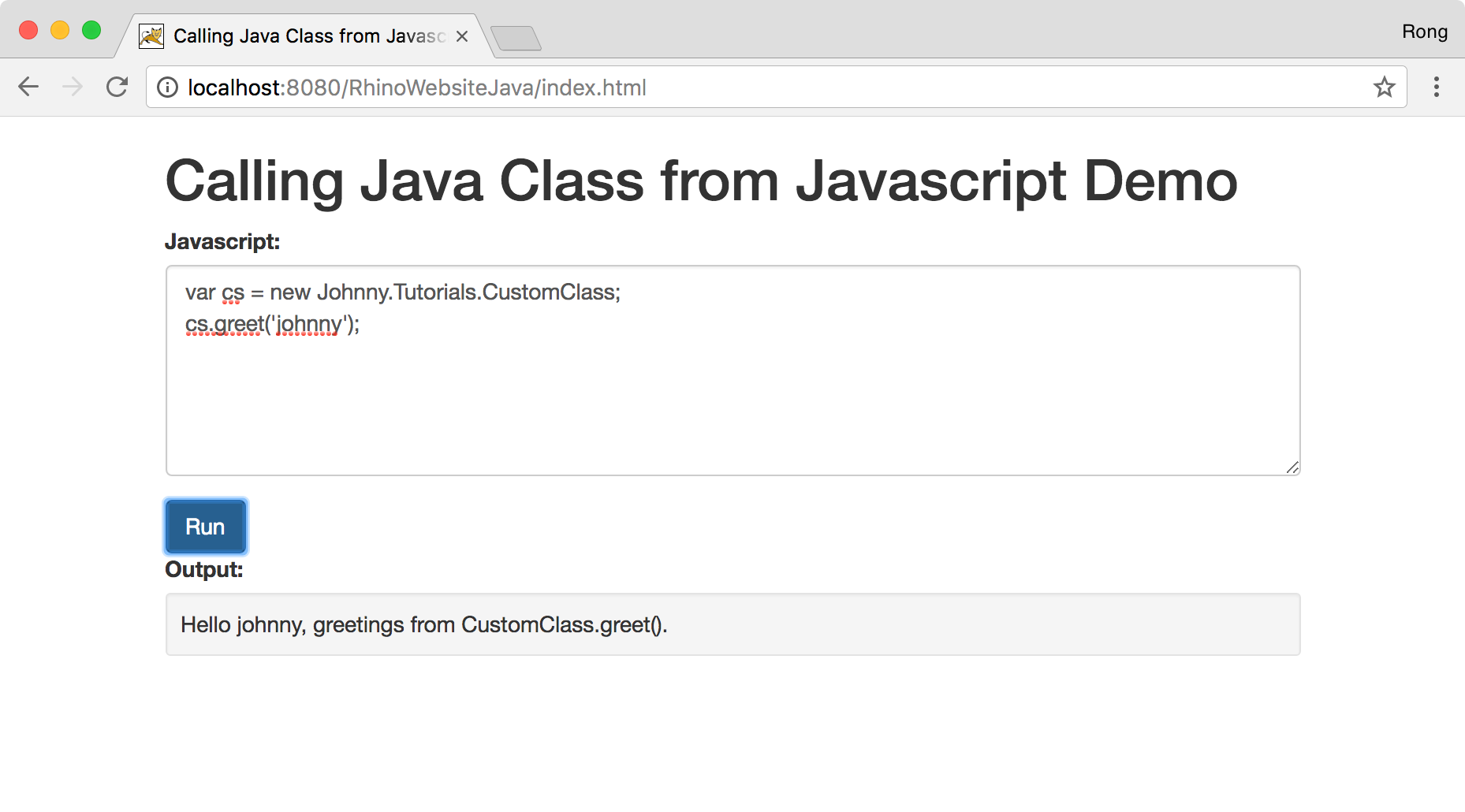2543. Calling Java Class from JavascriptRhino, Javascript, and Java
Use Rhino to call java class and its method with javascript at server side.
1. Introduction
In the previous posting Running JavaScript at Server Side with Rhino, we learned how to run javascript at server side. In this posting, we will learn how to call java classes and methods from javascript. We will re-use the servlet project from the previous posting, but it will be renamed to RhinoWebsiteJava.
2. Start Testing Page
Right-click on RhinoWebsiteJava->WebContent->index.html, Run As->Run On Server, specify Tomcat as web server and launch this servlet project with it.
Open web browser, access http://localhost:8080/RhinoWebsiteJava/index.html.
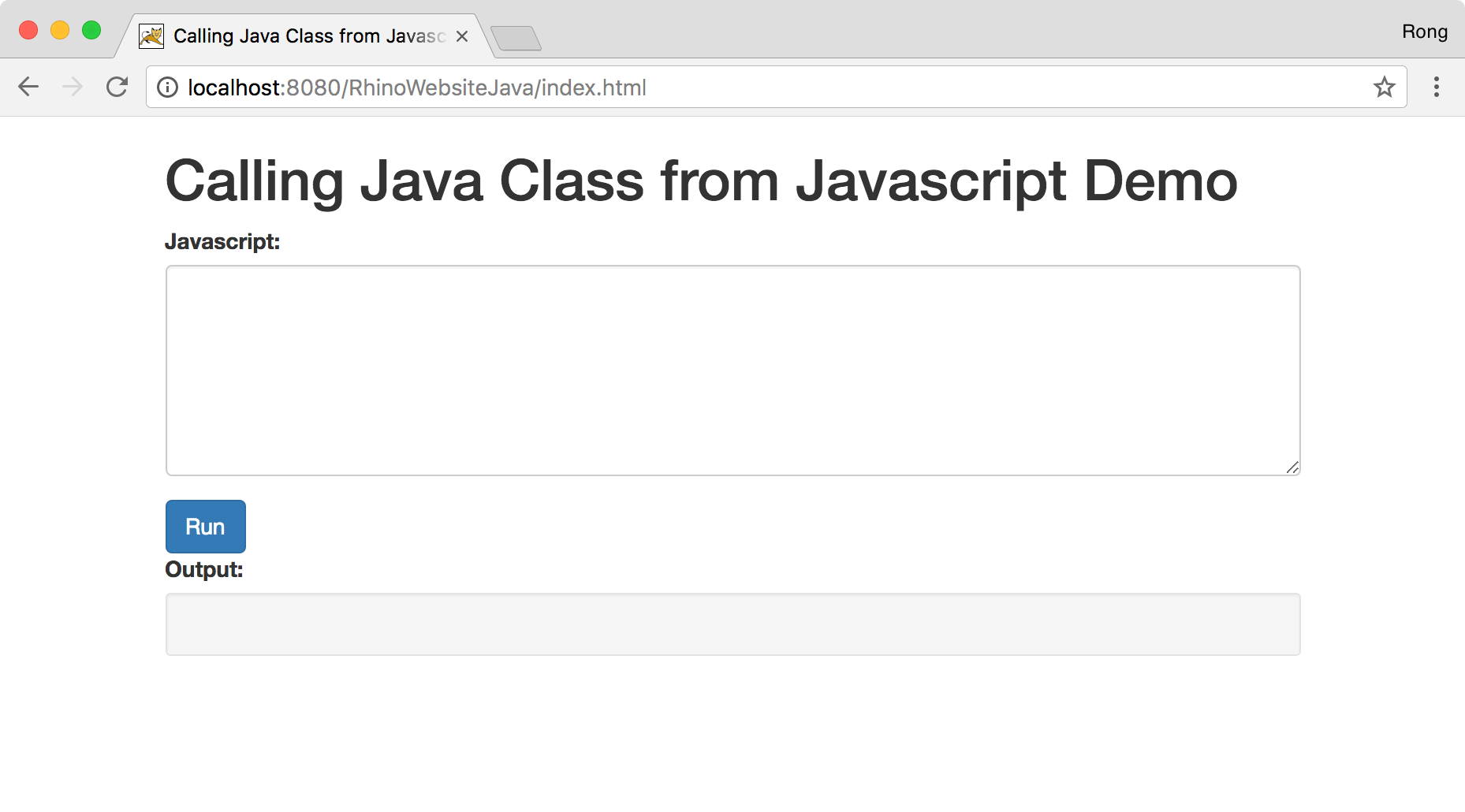
3. Calling Native Java Class
Input following script to the javascript input box, and click Run button.
function getTime() {
var date = new java.util.Date();
return date;
}
getTime();
Output:
Thu Oct 12 10:28:13 PDT 2017
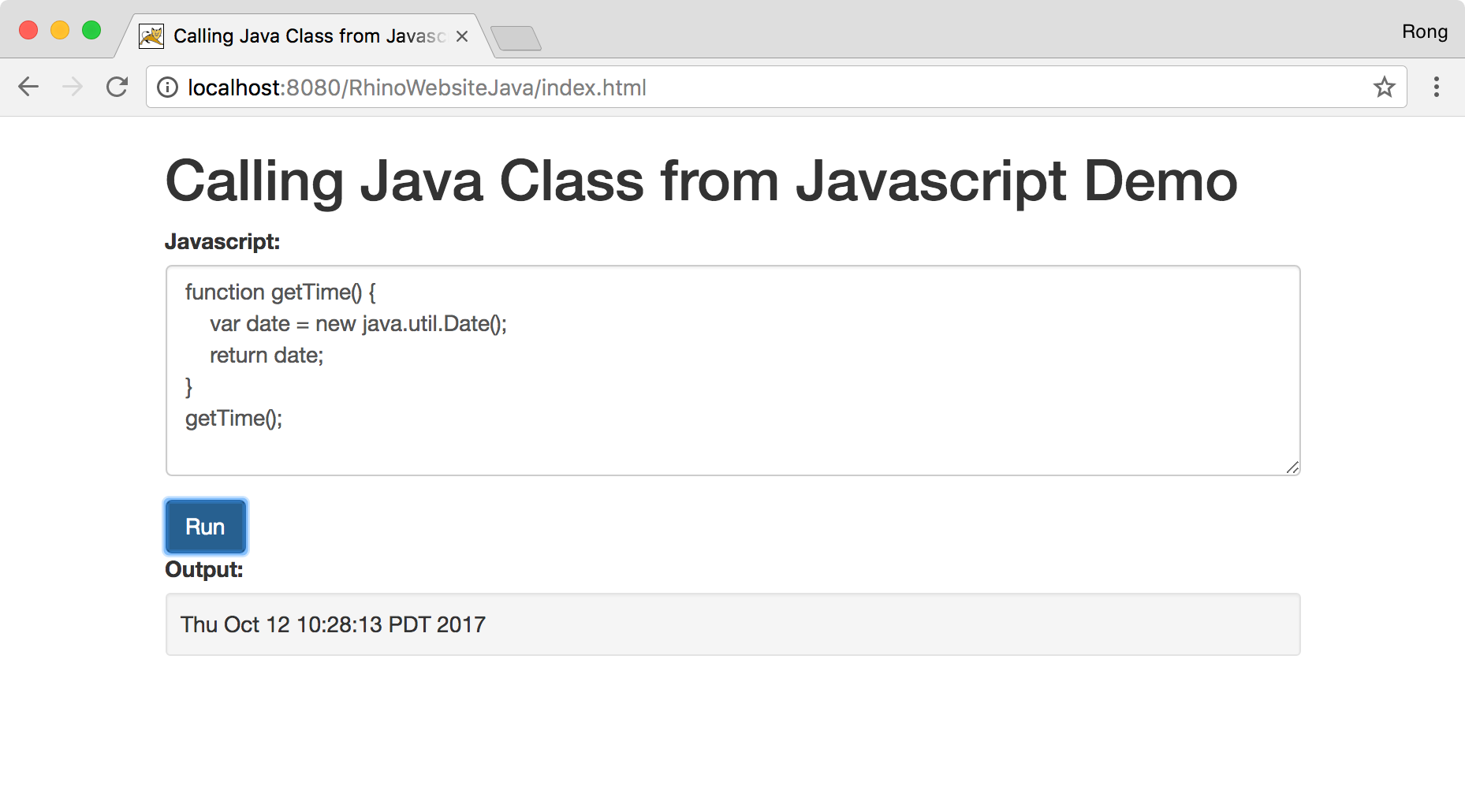
4. Calling Custom Class
4.1 Creating Custom Class
Create a class named CustomClass in the package ‘Johnny.Tutorials’ as follows. There are two methods defined in this class, greet() is an instance method and greetStatic() is a static method.
package Johnny.Tutorials;
public class CustomClass {
public String greet(String myname) {
System.out.println("Hello!");
return "Hello " + myname + ", greetings from CustomClass.greet().";
}
public static String greetStatic(String myname) {
System.out.println("Hello!");
return "Hello " + myname + ", greetings from CustomClass.greetStatic().";
}
}
4.2 Calling Instance Method of Custom Class
Input following content to the javascript textbox. Notice that we have to add Packages prefix to access custom class.
var cs = new Packages.Johnny.Tutorials.CustomClass;
cs.greet('johnny');
Output:
Hello johnny, greetings from CustomClass.greet().
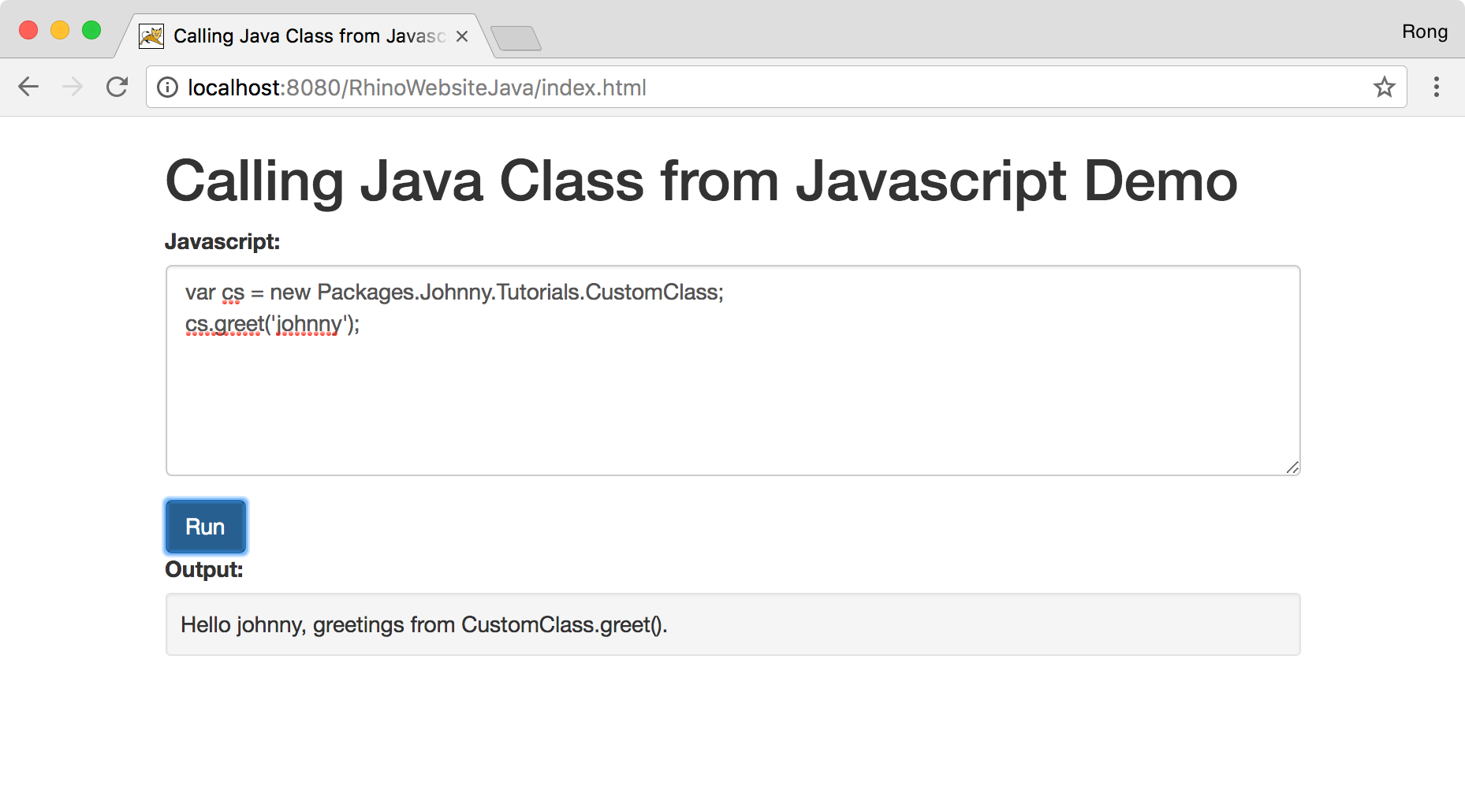
4.3 Calling Static Method of Custom Class
Input following content to the javascript textbox. Notice that we have to add Packages prefix to access custom class.
var cs = Packages.Johnny.Tutorials.CustomClass;
cs.greetStatic('johnny');
Output:
Hello johnny, greetings from CustomClass.greetStatic().
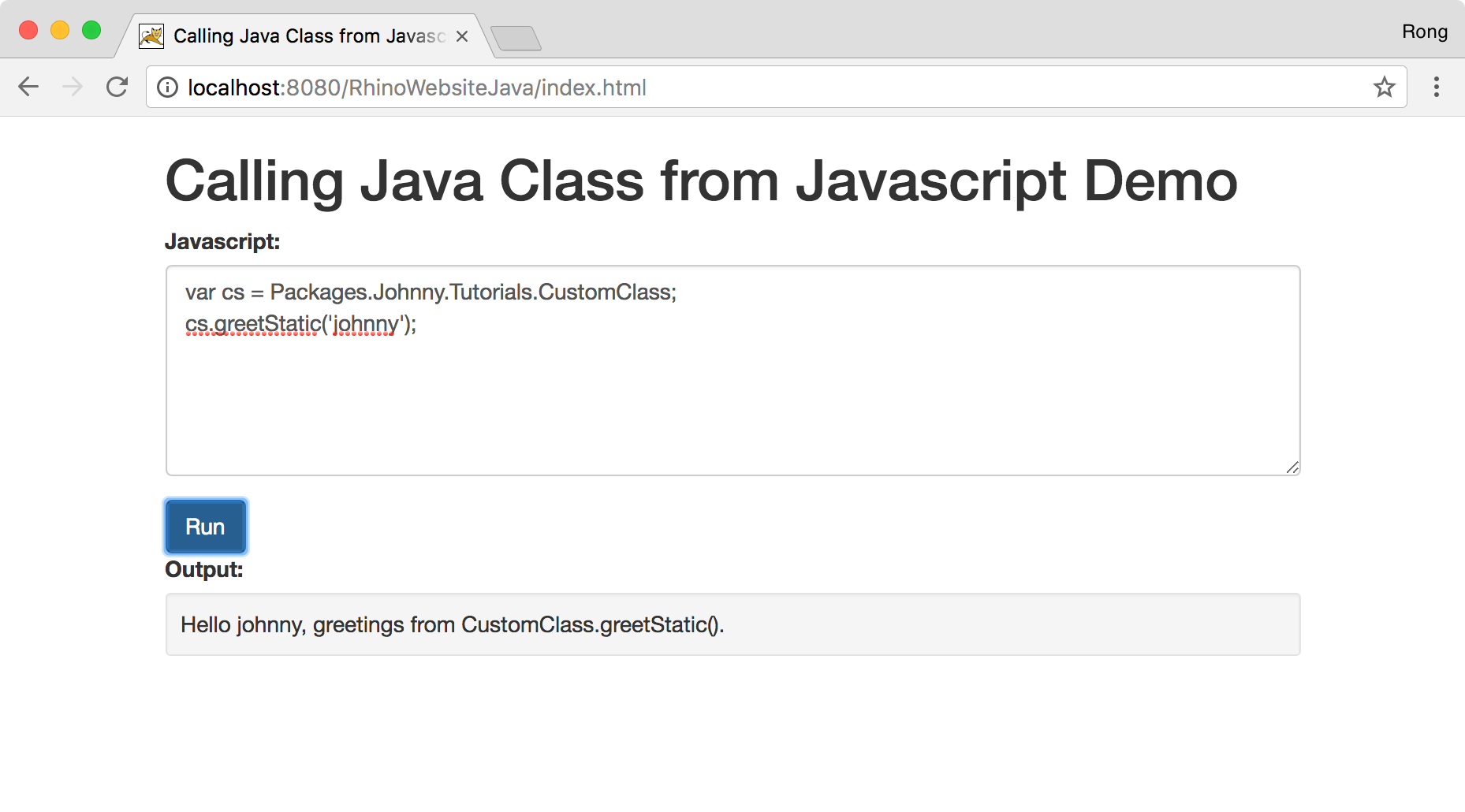
4.4 Calling Custom Class Without Packages Prefix
To avoid adding Packages prefix when calling custom class, we can define a global package named ‘Johnny’, and use it to access custom packages and classes. Input following content to the javascript textbox.
var Johnny = Packages.Johnny;
var cs = new Johnny.Tutorials.CustomClass;
cs.greet('johnny');
Same output:
Hello johnny, greetings from CustomClass.greet().
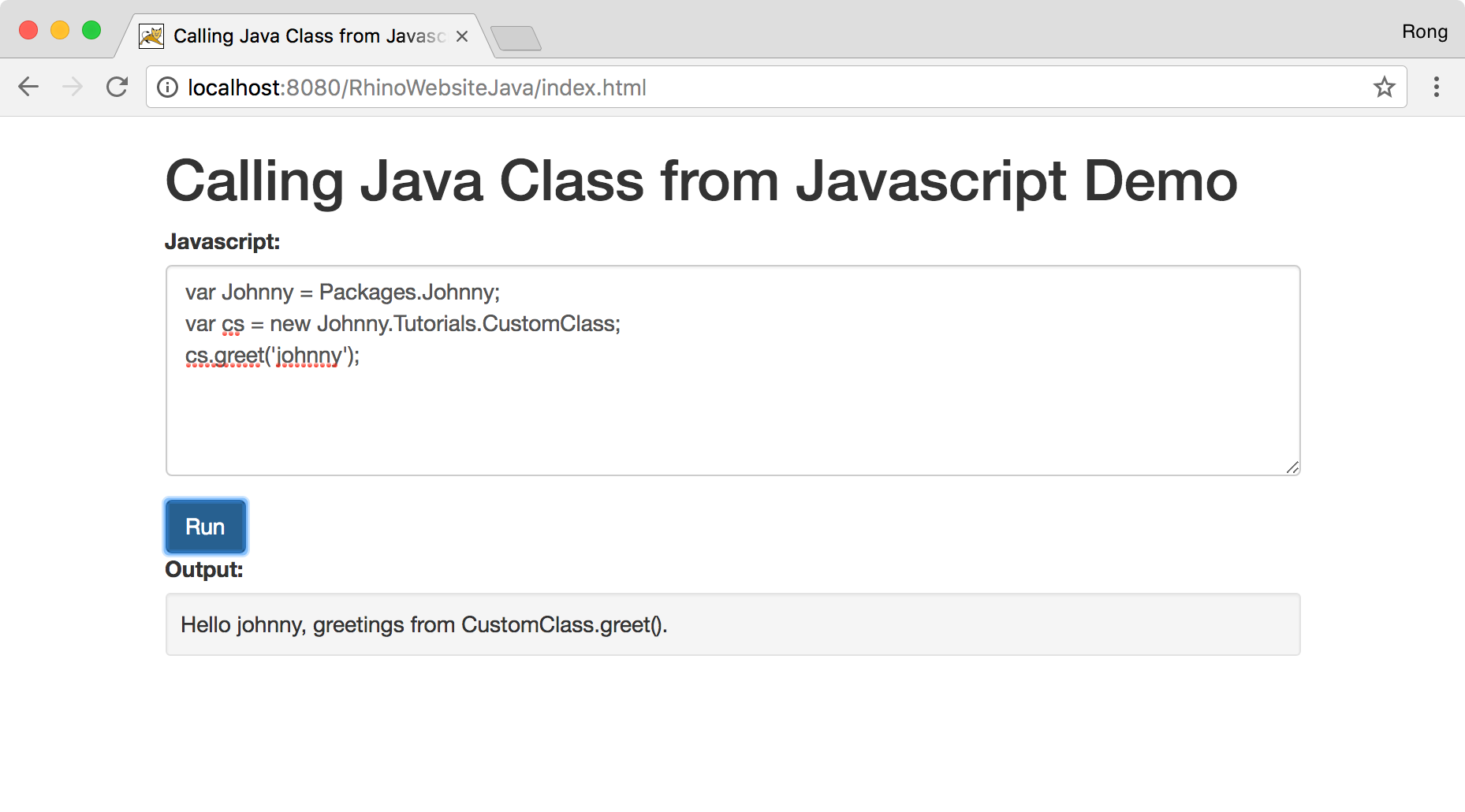
4.5 Optimizing Servlet
Edit the ‘doPost()’ method of ‘RhinoServlet.java’, add var Johnny = Packages.Johnny; before running the script submitted from client. By doing this, there is no need to use Packages prefix in the client scripts.
protected void doPost(HttpServletRequest request, HttpServletResponse response) throws ServletException, IOException {
response.setContentType("text/plain");
String code = request.getParameter("code");
Context ctx = Context.enter();
String packagesText = "var Johnny = Packages.Johnny; \n";
packagesText += code;
try {
Scriptable scope = ctx.initStandardObjects();
Object result = ctx.evaluateString(scope, packagesText, "<code>", 1, null);
response.getWriter().print(Context.toString(result));
} catch(RhinoException ex) {
response.getWriter().println(ex.getMessage());
} finally {
Context.exit();
}
}
Input following content to the javascript textbox. This time, we don’t need to define a global package or added Packages prefix.
var cs = new Johnny.Tutorials.CustomClass;
cs.greet('johnny');
Same output:
Hello johnny, greetings from CustomClass.greet().
